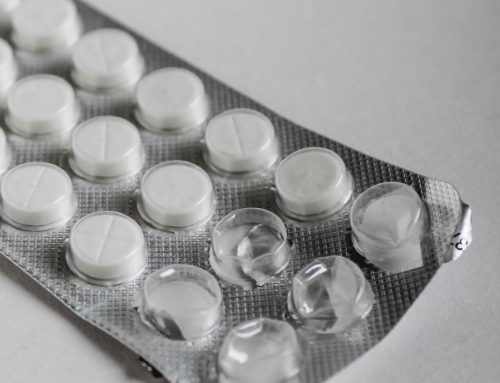There’s no other drink quite like ginger tea. Yes, ginger is full of nutrients. I’m also a fan of the spicy ginger kick that wakes me up in them morning.
Can You Get Ginger Tea Side Effects?
Here’s the short answer: probably not.
The risk of side effects from ginger is much lower than from common prescription drugs like NSAIDs and the other painkillers. If possible, I’d rather prescribe ginger to my patients than a drug.
Side effects from ginger are rare1. You’d have to be taking a large amount of ginger to experience side effects. If you do eat too much ginger, mild heartburn, diarrhea, and mouth irritation are possible. Most of us won’t come close to eating too much ginger.
Having said that, here are some precautions:
If you take blood-thinning medication: Ginger reduces the clotting of blood2. That’s usually a good thing for preventing blood clots. If you already take blood thinners, though, talk to your doctor. Some examples of blood-thinning drugs are warfarin (Coumadin), clopidogrel (Plavix), and aspirin.
Diabetes: May lower blood sugar and cause hypoglycemia (low blood sugar).
High blood pressure medication: May lower blood pressure too much and cause an irregular heartbeat.
If one of the above apply to you, talk to your doctor. I try my best to prescribe foods and reduce the pills my patients have to take. That may or may not be possible for you.
Children under the age of 2: Talk to your doctor before feeding ginger to young children.
A Simple Ginger Tea Recipe
If you’re thinking of making a cup of ginger tea, please do try it. Ginger tea is an easy way to add this spice to your diet.
Making ginger tea will take just amount a minute. Slice some fresh ginger into strips and let them steep in hot water. Add a dash of honey or maple syrup. That’s it.
Ginger Tea Variations
Feeling adventurous? Try these flavor combinations:
- turmeric, ginger, lemon, and honey
- milk, ginger, and honey
- turmeric, milk, honey, and ginger
- coriander, cardamom, lime, ginger, basil, and honey
- ginger, chamomile, fennel seeds, and honey
Why Should I Drink Ginger Tea?
Well, for one thing, it’s delicious. If you’re not a morning person, the sweet and spicy ginger kick will wake you right up. Ginger tea is an especially good idea after a large meal. Ginger’s known for aiding digestion. I usually have a cup after lunch. You might feel that the food settles down a little more easily.
On top of flavor, ginger is a powerful anti-inflammatory3. China and India have used ginger for thousands of years as medicine.
A Few Ginger Root Health Benefits:
1. Cure indigestion
If you feel gassy, bloated, or you’re lacking appetite, have some ginger. Drink it as tea. Ginger can also cure stomach upsets and pain.
2. Nausea and vomiting
The Chinese have prescribed ginger as anti-nausea medicine for thousands of years. Western research is now confirming ginger’s ability to reduce nausea. Ginger cures nausea caused by a whole range of different reasons. Pregnant women who eat ginger4 will likely vomit less and reduce their nausea. Research also says that if you eat ginger before taking anaesthesia for a surgery, you probably won’t have post-operative nausea. In fact, ginger was even more effective5 than the anti-nausea pharmaceutical drug that ginger was tested against. If you do have to undergo surgery, eat some ginger before. Ginger may also help with nausea from chemotherapy6.
Chew on this
Changing your diet and lifestyle is the most powerful step you can take to improve your health.
Health blogs sometimes exaggerate the health benefits of foods. I’ve seen this happen with ginger. Ginger isn’t a silver bullet for any chronic diseases – in fact, if anyone tells you it is, make sure to check their credentials. What we do know is that eating ginger along with other good foods and having a healthy lifestyle will improve your health.
What do you think of ginger tea? Do you like it? Share with us in the comments!





Whether it is modern medicine or ancient remedy, it may end up having a negative effect if used in large quantities. And same is the case with ginger.Though, ginger allergy is quite uncommon and only a few cases have been reported.
Every individual is different. Listening to your own body is key!